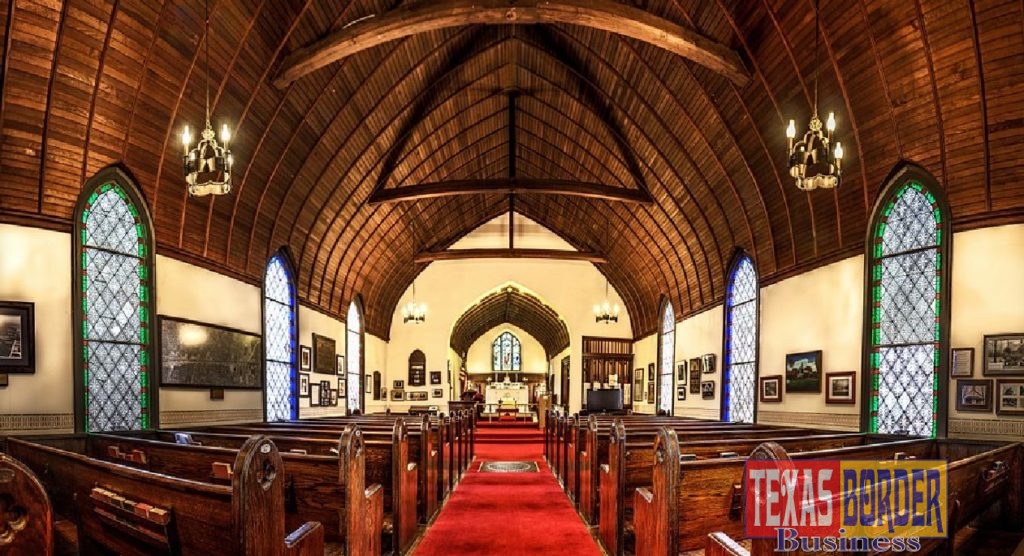
Texas Border Business
AUSTIN – Governor Greg Abbott and Attorney General Ken Paxton today issued updated joint guidance regarding the effect of Governor Abbott’s Executive Order GA-16 on religious services conducted by congregations and houses of worship. It recommends strategies for houses of worship to effectively slow the spread of the Coronavirus (COVID-19) while serving their respective communities of faith.
“Government and faith communities throughout Texas must work together to care for our neighbors and slow the spread of COVID-19,” said Attorney General Paxton. “This updated guidance provides clear direction for houses of worship to protect the health and safety of their congregations as they continue to hold religious services, exercise religious liberty and serve their faith communities.”
All emergency orders must comply with the First Amendment of the United States Constitution, Article I of the Texas Constitution, and the Texas Religious Freedom Restoration Act, which protect the rights of Texans to freely exercise their religion. Consistent with those protections, Executive Order GA-16 defines essential services to include “religious services conducted in churches, congregations, and houses of worship.” Orders given by state or local governments, therefore, may not prohibit people from providing or obtaining those religious services. And importantly, under GA-16, local government may not close houses of worship.
Guidance for Houses of Worship During the COVID-19 Crisis
During these challenging times, government and faith communities throughout Texas need to work together to love our neighbors and slow the spread of Coronavirus. To facilitate this collaboration, State and local governments must clearly articulate their directives aimed at mitigating spread of the virus. This updated joint guidance from the Office of the Attorney General and the Office of the Governor is the official guidance regarding the effect of Executive Order GA 16 on religious services conducted in churches, congregations, and houses of worship.
The government must give special consideration to houses of worship when issuing orders related to the COVID-19 crisis.
The First Amendment to the United States Constitution and Article I of the Texas Constitution protect the right of Texans to worship and freely exercise their religion according to the dictates of their own consciences. In addition, the Texas Religious Freedom Restoration Act (“RFRA”) provides additional protections to faith communities, and government must ensure that it complies with RFRA when it acts, even during a disaster. Thus, when state or local governments issue orders prohibiting people from providing or obtaining certain services, they must ensure that these orders do not violate these constitutional and statutory rights.
Houses of worship provide “essential services.”
By executive order, Governor Abbott has defined essential services to include “religious services conducted in churches, congregations, and houses of worship.”1 Institutions providing these essential services can provide them under certain conditions described in Executive Order GA 16 and local orders by counties or municipalities that are consistent with GA 16. To the extent there is conflict between the Governor’s Executive Order GA 16 and local orders, GA 16 controls. Local governments may not order houses of worship to close.
Houses of worship should conduct as many activities as possible remotely, and should follow federal guidelines when providing services in person.
Houses of worship should conduct as many of their activities as possible remotely. Services that houses of worship cannot conduct remotely should be conducted in accordance with guidance from the White House and the Centers for Disease Control and Prevention (“CDC”).2 For example:
1 Exec. Order No. GA 16 at 3 (Apr. 17, 2020); see also Exec. Order No. GA 14 at 2 (Mar. 31, 2020) (superseded by GA 16).
2 Ctr. for Disease Control, Interim Guidance for Businesses and Employers to Plan and Respond to Coronavirus Disease 2019 (COVID-19) (Apr. 9, 2020), https://www.cdc.gov/coronavirus/2019-ncov/
1 April 21, 2020
- Instruct sick employees, volunteers, and guests to stay home;
- Practice social distancing by maintaining appropriate distance between people;
- Maintain good hygiene by washing your hands frequently, using hand
sanitizer, using your elbow to cover coughs, and not touching your face;
- Implement environmental cleanliness and sanitization practices; and
- Clean and disinfect work areas frequently.
Houses of worship, like providers of other essential services, are to follow additional guidance from the White House and CDC whenever possible.3
Houses of worship should help slow the spread of the virus.
Texas is a big state and the transmission rate of COVID-19 varies in different communities. Texans also have big hearts and should love their neighbors by evaluating the rate of local community spread to determine the appropriate level of mitigation strategies to implement.4 Houses of worship play an important role in this effort, and can use their creativity to help slow the spread of the virus. For example, a church could hold “drive-in” style services. Or because Executive Order GA 16 permits drive-thrus to provide goods and services, a house of worship may, according to their faith practices, provide communion or a blessing through a similar drive-up service.
When conducting services, houses of worship may consider implementing the following practices:
- Encourage all attendees who are 65 and above to stay home and watch the services online, or provide a “senior service” exclusively for attendees 65 and above to attend in person.
- Ask all attendees who have an underlying at-risk health condition to stay home and watch the services online.
- Equip ushers and greeters with gloves and masks.
- Consider keeping childcare closed, unless the house of worship can comply
with CDC guidelines for childcare facilities.5
2 April 21, 2020
- Ensure all attendees sanitize their hands and put on a mask before entering the building.
- Ensure attendees sit with their family unit, use social distancing between each unit, and, if necessary, add more service times to facilitate distancing.
- Clergy should dismiss attendees by family unit, maintaining social distancing.
- Staff should sanitize seats and frequently touched surfaces between services.
- Consider refraining from passing collection plates and instead provide a
central collection box in the building or encourage online giving.
- Consider how the sacraments can be administered without attendees having
to touch the same surfaces and objects.
These guidelines do not violate the religious liberty of houses of worship.
Under the extraordinary circumstances in which we temporarily live, these guidelines provide that houses of worship may remain open. The guidelines make only recommendations to houses of worship. They do not violate the religious liberty of houses of worship because the government has a compelling interest in recommending this guidance (stopping contagion) and the guidance is the least restrictive means of serving that compelling interest (allowing houses of worship to stay open for ministry, but suggesting ways that help slow the spread of COVID-19).














